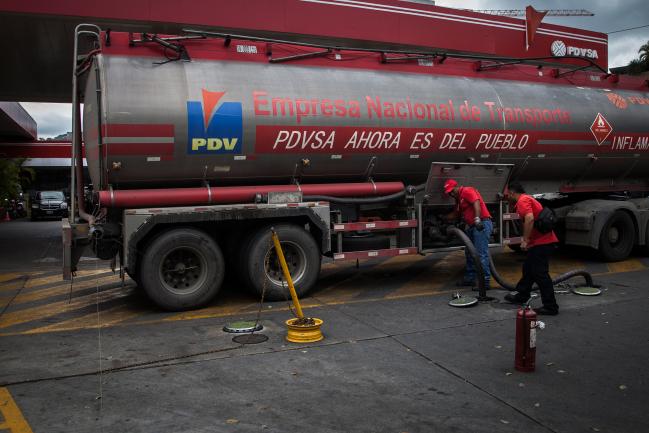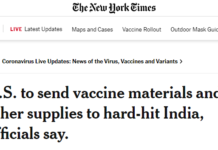
(Bloomberg) — Venezuela’s state-run oil company said hello transferred the funds for making an $842 million principal payment on its bonds due Friday, overcoming the initial of a lot of hurdles the land will face in future the way it seeks in order to avoid sinking into default.
The announcement spread feelings of relief to investors inside the bond market, who drove up Venezuelan asset prices across the board Friday. An extra big payment arrives Nov. 2, as well as country’s decision to disburse the money for today’s payment points too it in all probability plans to meet any particular one too.
But ample obstacles remain, like the immediate challenge of being sure that the amount of money causes it to become all the way up on the accounts of creditors. In recent weeks, Venezuelan officials told investors that less-critical rates of interest have gotten held up from the payment chain because U.S. sanctions to the government scared many international banks into refusing to learn the bucks transfers.
“Given logistics and steps was required to get payment to bondholders, I doubt the fact that money will arrive by the end of today,” said Ray Zucaro, the primary investment officer at Miami-based RVX Asset Management. “Monday is a bit more realistic, and we will hear an enormous sigh of relief.”
While Petroleos de Venezuela SA said hello made the primary payment on amortizing notes due 2020, there wasn’t any mention of $107 million useful due together. The organization and government have used grace periods on sudden expenses a billion dollars of these payments due this month, nonetheless the principal amount Friday didn’t have any such buffer. It’s newest challenge could be the additional $1.2 billion owed on notes maturing in the near future.
“I don’t think we’ll sweat so much visiting November 2, given the fact that they’ve chose to make this amortization payment,” said Siobhan Morden, who heads Nomura Securities International’s Latin America fixed-income strategy. Missing the eye owed “reaffirms the coupon watch and concerns that they continue to keep tough make these payments.”
A default for PDVSA might well have potentially been disastrous at one time when entry to credit is already severely curtailed, refineries are running under one half of their capacity and oil output has tanked to below Two million barrels a day. Venezuelan President Nicolas Maduro has insisted that his government will keep to honor its international obligations as he curbs imports to save cash for debt payments, causing shortages of goods to worsen in a very nation already suffering an in-depth recession and hyperinflation.
PDVSA “confirms its full solvency and opportunity to fulfill its commitments, rapidly economic war and also the imposition of unjustified sanctions from Donald Trump,” the oil firm said in its statement.
The notes due 2020 jumped 3.5 cents to 85 cents over the dollar since 12:27 p.m. in Ny, as the securities due in a month’s time climbed to some three-year most of 95.8 cents. Sovereign bonds due in 2027 leaped 9.6 % to 36.9 cents about the dollar.
To make it a point, there are numerous Venezuela watchers — including economists for instance Ricardo Hausmann — who are urging the government to cease payments. They say the debt load is unsustainable, and sending dollars to foreign investors while reducing imports of food, medicine and basic goods to the Venezuelan people is immoral.
Click here to learn to read how Venezuela got into this mess
The government and PDVSA will owe international creditors $10 billion in bond payments pick up and $14 billion in 2019, depending on Capital Economics. International reserves have sunk to your 15-year low near $10 billion.
“It remains a subject of when — not if — PDVSA along with the government default,” analysts on the research firm said inside a note Friday.
If PDVSA definitely makes the pending payments through in the future, Venezuela should have a smooth ride until its next hefty slice of payments come due in April 2018, reported by Jan Dehn, their heads of research at London-based Ashmore Group Plc, which oversees about $58 billion of assets and it is the most significant reported holder of PDVSA’s 2020 and 2019 bonds.
“These were saving money for making these big payments,” he stated.







